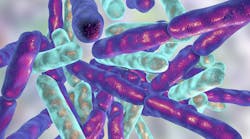Huberman Lab YouTube video podcast: Oral health, summarized
Andrew Huberman, PhD, is a professor of neurobiology and ophthalmology at Stanford University School of Medicine and has become famous for his social media influence in the world of health and antiaging medicine. Dr. Huberman has more than 5.3 million followers on YouTube and 6.2 million followers on Instagram. He is known for his six pillars of health concept that includes diet, exercise, sleep, stress, social connection, and sunlight. He recently added a seventh pillar labeling it “the oral and gut microbiome connection,” which is a big step in the acknowledgment that the oral cavity plays a major role in systemic health.
Dr. Huberman recently put out a video podcast explaining this connection called, “How to improve oral health and its critical role in brain and body health.” This article will highlight the overall concepts discussed in the podcast.
Three types of dental patients
Dr. Huberman says there are three categories of dental patients:
- Type 1: the diligent patients who brush and floss at least two times a day and show up for regular dental visits, but they may not know about the oral microbiome.
- Type 2: the patients who are not consistent with brushing and flossing. They are somewhat compliant with professional dental visits, but they may miss a visit or two.
- Type 3: this group includes type 1 patients, but type 3 patients are also aware of the importance of maintaining a healthy oral microbiome and its connection to overall systemic health.
Remineralization and demineralization
The three layers of the tooth are enamel, dentin, and pulp. The process of enamel remineralization and demineralization is discussed in terms of the tooth’s ability to respond to acids that demineralize the tooth and materials that help the tooth remineralize. Demineralization is the breakdown of enamel on the tooth, and remineralization is the process the body uses to rebuild the tooth enamel.
Anatomy of the gingival complex
The gingiva, periodontal ligament, supracrestal fibers, and overall attachment apparatus of the gums and tooth are discussed in the podcast.
What is the importance of saliva?
Dr. Huberman covers importance of saliva and its ability to rebalance oral pH. He briefly mentions drugs, such as methamphetamine, that induce hyposalivation. He touches on the inability to nasal-breathe and mouth-breathing leading to dry mouth and low saliva. The moist environment of the mouth due to saliva allows scarring to be minimal when trauma occurs in the mouth. Certain good bacteria are promoted with healthy saliva.
Periodontal disease
If the good bacteria are not promoted, unhealthy and pathogenic bacteria develop that cause attachment loss around the tooth and periodontal disease to occur. The periodontal-systemic connection is discussed including periodontitis being linked to Alzheimer’s disease, cardiovascular problems, and other systemic diseases.
Cavities
Bacteria that feed on sugar and release acid, primarily Streptococcus mutans, is the cause of cavities—not the sugar itself. This bacterium is not something you are born with; it’s communicable. S. mutans loves simple, refined sugars and upon digesting them, produces acid that turns the mouth acidic and initiates the demineralization process. The amount of time the mouth is either acidic or alkaline will determine the amount of demineralization versus remineralization that occurs respectively.
Fluoride: Is it bad?
Fluoride is a mineral that can replace some of the hydroxyapatite bonds in enamel, making them “supraphysiologically” stronger. Dr. Huberman mentions the debate between fluoride being a good thing to add to drinking water versus the belief that it causes systemic problems such as thyroid issues and disruptive brain health. He talks about two lawsuits: one in California that wants to remove fluoride from drinking water, while another in Buffalo, New York, aims to increase the amount of fluoride in drinking water. He also says some research is available that shows fluoride, while making teeth stronger and more resistant to cavities, isn’t good for the oral microbiome. He personally uses a fluoride toothpaste.
What are things you should not do for the health of your teeth?
- Drink alcohol: It’s bad for your microbiome and lowers the pH in the mouth, favoring demineralization. It causes dry mouth, which promotes gum disease and cavities.
- Take stimulants: They lower the pH of the mouth, decrease saliva flow, increase demineralization, increase mouth-breathing, and dry out the mouth.
- Smoke or chew tobacco: Same reasons as above, with the addition that it is terrible for gum health and bone. In addition, the risk of oral cancer increases.
Circadian cycles of saliva
If you are going to eat sugar or drink alcoholic/acidic drinks, limit the exposure to the teeth and gums. Drink through a straw or rinse the mouth out after eating or drinking. At night, saliva naturally slows down compared to the daytime, so limit intake at night. Limit constant exposure to sugars and other foods. Give the mouth time to allow saliva to make the oral pH alkaline so remineralization can occur—a vote for intermittent fasting. This makes the most important time to brush and floss the teeth at night when saliva slows.
Oral hygiene recommendations
Brush and floss twice a day. Brush the gums to stimulate blood flow, especially if teeth are sensitive. Use of a Waterpik water flosser may be better than traditional flossing for some people. Young children with spaces between their teeth probably don’t need to floss.
Xylitol
S. mutans loves to eat xylitol. When it does, it can’t produce the acid that causes cavities. Xylitol can even kill the bacterium after ingestion. In addition, S. mutans preferentially chooses xylitol over other sugars. Xylitol can also reduce gum inflammation and inflammation of other tissues in the mouth. He says xylitol may be positive for both the mouth and the gut microbiome. Note: This is Dr. Huberman’s personal view as other research disagrees with this statement.
Mouth rinse
Most mouth rinses contain alcohol, which Is terrible for the oral microbiome. In addition, antiseptic mouth rinses, such as chlorhexidine, can also cause damage to the good oral bacteria, so be cautious when using them. These rinses can damage the oral microbiome and decrease nitric oxide in the mouth.
Homemade toothpaste and mouth rinse
Baking soda and water can make a good toothpaste. Dr. Huberman does not advocate mouth rinses with baking soda, water, and peroxide because they can cause canker sores. Salt dissolved in water can be an excellent mouth rinse.
Why is nitric oxide important?
Nitric oxide is a very important molecule involved in vasodilation and other large organ function, including waste removal and signal communication. Using alcohol and/or an antiseptic mouth rinse affects the oral microbiome in the mouth, decreasing the commensal bacteria on the posterior dorsum of the tongue responsible for nitric oxide production.
One way to make sure you are promoting the healthy bacteria needed for nitric oxide production (besides not using an antiseptic mouth rinse) is tongue-scraping. Brushing the tongue and/or tongue-scraping removes the bad bacteria and promotes eubacteria, the helpful kinds of bacteria. Use a separate brush for tongue-brushing to prevent bacterial crossover. Use a new toothbrush and throw the old ones out. (Current recommendations say no more than three months of use.)
Oral-gut microbiome connection
One example of what can occur with an unhealthy gut microbiome that manifests in the mouth is canker sores. Canker sores occur for many reasons, one being a dysbiosis in the stomach. A good way to promote a healthy diversity and balance of gut bacteria is to eat low-sugar, fermented foods (one to four servings a day). Prebiotic foods such as those high in fiber will also promote good gut bacteria. In some cases—such as after antibiotic use—a probiotic may be necessary as a temporary tool, but Dr. Huberman does not advocate long-term use.
Silver fillings (mercury amalgam): Are they bad?
The dentists Dr. Huberman spoke with generally do not recommend removing silver filings that are intact. Most of the mercury that can be released into the bloodstream actually comes from the removal of these filings. Avoid chewing mastic gum or hard candies that can break down these filings and liberate the mercury.
How often should you get professional cleanings?
Most dentists agree that the average is about twice a year or every six months. This does not include patients with periodontal disease or extensive reconstructive surgery who may need to increase their dental visits per year. The dental appointment is not just for cleaning teeth but also to establish baseline health, check for cavities, screen for pathology such as oral cancer, and check on how patients are doing with their home oral hygiene routine.
Conclusions
The oral microbiome is connected to the gut and the brain and is very important for overall systemic health. Patients should not focus only on brushing, flossing, and going into the dentist for professional cleanings, but also on things they can do to promote a healthy oral microbiome.
Editor’s note: This article originally appeared in Perio-Implant Advisory, a chairside resource for dentists and hygienists that focuses on periodontal- and implant-related issues. Read more articles and subscribe to the newsletter.
Scott Froum, DDS, a graduate of the State University of New York, Stony Brook School of Dental Medicine, is a periodontist in private practice at 1110 2nd Avenue, Suite 305, New York City, New York. He is the editorial director of Perio-Implant Advisory and serves on the editorial advisory board of Dental Economics. Dr. Froum, a diplomate of both the American Academy of Periodontology and the American Academy of Osseointegration, is a volunteer professor in the postgraduate periodontal program at SUNY Stony Brook School of Dental Medicine. He is a PhD candidate in the field of functional and integrative nutrition. Contact him through his website at drscottfroum.com or (212) 751-8530.
About the Author

Scott Froum, DDS
Editorial Director
Scott Froum, DDS, a graduate of the State University of New York, Stony Brook School of Dental Medicine, is a periodontist in private practice at 1110 2nd Avenue, Suite 305, New York City, New York. He is the editorial director of Perio-Implant Advisory and serves on the editorial advisory board of Dental Economics. Dr. Froum, a diplomate of both the American Academy of Periodontology and the American Academy of Osseointegration, is in the fellowship program at the American Academy of Anti-aging Medicine, and is a volunteer professor in the postgraduate periodontal program at SUNY Stony Brook School of Dental Medicine. He is a trained naturopath and is the scientific director of Meraki Integrative Functional Wellness Center. Contact him through his website at drscottfroum.com or (212) 751-8530.


